Editor's Note: Most of the entries here deal with the LGBT community and the issues that affect us as a group. However, from time to time Adam and I will want to share things from our personal lives.
As I've said before, I go to the dog park as often as I can. We have a Siberian Husky - German Shepherd mix and a Pembroke Welsh Corgi, both high energy, working breeds that need a lot of exercise. They need to interact with other dogs that can give them the attention and energy that I cannot on my own.
In that time, I've encountered at least fifty different breeds on a regular basis, and probably another fifty on an occasional basis. And while each dog is its own unique animal regardless of breed, there are some that seem to be better around my dogs than others. The following is a series of lists based on my observations from probably around 500 dog park visits in the last two years.
The Breeds I Feel Most Comfortable Playing With My Dogs
1). Siberian Husky - This one's a no brainer. There is no breed that mixes speed, energy, and bulk like a Husky. They're fast and spirited enough to give my dogs a good workout, large enough to handle wrestling when the dogs are up for it, and their temperament is a perfect blend of friendly and aloof. That my dog is part Husky seems to inspire a certain sort of kinship as she seems to like them best.
2). Rhodesian Ridgeback - Rhodesians were bred to hunt lions, so they are absolutely fearless, and some can grow to over a hundred pounds. They are incredibly tough, extremely solid dogs without being super bulky. They might be one of the best all-purpose breeds in existence given their strength, size, and speed. Given their demeanor, they're probably one of the least likely breeds to show aggression out of nervousness. When dogs are wrestling and accidents can happen, that's definitely a good trait.
3). Australian Shepherd - This is basically a repeat of all the reasons I like Huskies. They're fast, decent sized, high energy, and super smart, plus their fur gives them an added barrier against rough play. They're more of a herding dog so they tend to be less up for a straight run than Huskies or Ridgebacks, but they still usually end up being a great playmate.
4). English Bull Terrier - English Bull Terriers are like bowling balls with legs. Small, compact, and remarkably tough, they're great for tug-of-war sessions, although not so much for running and wrestling. They're a good sturdy smaller breed, but they tend to lack that Napoleonic aggression you sometimes see in other small breeds (Corgis). The only downside is they will rip your toys to shreds. Our dogs are more runners so they tend to leave them alone though.
5). Great Danes - Danes have a reputation for being lumbering gentle giants, and while they certainly are that, they can be super playful too, especially as puppies. They're definitely big enough to be able to handle any sort of rough play, but also goofy and clumsy enough to even the score a little bit with our smaller dogs. When my Husky gets running with them, it looks like a dog running with a couple of deer.
The Calmest Breeds
1). Irish Wolfhound - Wolfhounds are a little frightening to some, being the largest (height-wise) breed and having been bred to hunt wolves, but they're also one of the gentlest breeds in existence. Not recommended for any sort of guarding activity, these dogs just want to lope around the park at their own leisurely pace. They're supposedly great coursing dogs, but I've never actually seen one run.
2). Basset Hound - I always have a hard time believing these are hunting dogs, because every one I've seen has looked like he was laboring just dragging his ears around. They're the kind of dogs that my dogs quickly pass over because they're just not very interesting to them, but I'm sure they make great pets.
3). Leonberger - Most larger breeds tend to be relatively calm, and Leonbergers are no different. Every once in a while I'll see a younger one that wants to romp around, but mostly they just slowly wander, oblivious to whatever the weather is.
4). Alaskan Malamute - Very similar to the Husky, Malamutes are larger, slower, and generally more docile. Most of the ones I've seen act similarly to the Leonberger, just strolling the park at their own pace, occasionally breaking to head into one of the fields to sniff around.
Most of the people that bring their dogs to the park do so because of their energy, so I have to end this list at four.
The Most Unpredictable Breeds / The Breeds I Least Like To Encounter
1). Golden Retriever - If I was here to be a jerk, the Golden Retriever would occupy each of the top five spots. If you gave me a room full of family owned Retrievers and a room full of family owned Bully Breeds, I'm avoiding the Retrievers every single time. They are the most unpredictable dog, they're big enough to do some damage, and there seem to be more stupid retriever owners than any other breed. There are at least three Retrievers at our dog park that have to be muzzled to go there.
This probably has a lot of people wondering why I am so opposed to the stereotypical American family dog, a breed that is often rated as the best family dog. And the answer is largely found within that sentence. Because retrievers are so common and so popular, there are so many owners that have them without a good understanding of dog behavior. They are a lot of people's first dog, and as such a lot of them come with poor training and a whole host of neuroses.
They also happen to be one of the most trainable breeds, which leaves their owners without a respect and understanding what more difficult dogs are like. To them, a dog is a creature that wants to be your friend. Tail wags are good, and any sort of noise is bad. They have absolutely no understanding of what is typical behavior for a Shepherd, or a Husky, or a Corgi or any number of more rambunctious breeds that aren't the least bit dangerous.
In conjunction with the issues above (and also partly because of them), they're often poorly socialized. One of the worst things you can encounter at a dog park is a poorly socialized older dog, because that leads to nervousness, which then leads to aggression. Retrievers also most often have the habit of engaging a dog in play and then running and hiding behind their owner. It sounds cute, but it's incredibly annoying because it ends with another dog barreling into the retriever owner's legs, or getting ticked off and starting to bark.
I've even had a few professionals tell me that the dogs that make them the most nervous are the Retrievers and Doodles (Retriever-Poodle) for the reasons listed above.
My dogs have had great experience playing with Golden Retrievers, but more often, I see at least one of the above.
2). Dachshund - This goes for a lot of little dogs because their owners think their yappiness is cute and don't do anything about it, but Dachshunds tend to be particularly nasty. Of the relatively few major incidents at the dog park I went to in New York, several of them were caused by, or involved Dachshunds. Luckily for the most part our dogs don't really bother with small dogs.
3). Chihuahua - Of all the breeds I've encountered, Chihuahuas seem to object the most to simply being sniffed. A lot of it probably comes from nervousness and poor socialization, but it may just be the fact that they're small. I can see it in my dog's eyes when she inspects a Chihuahua and it snaps at her, "Jesus fucking Christ...calm down."
4). German Shepherd - Shepherds seem to come in two types, the overly aggressive, and the overly fearful, and I don't think I'm suffering from a lack of sample size here as they're pretty common. I've had a lot of minor incidents with Shepherds where one dog or the other ends up getting spooked, but nothing major or dangerous. I don't worry too much since they're relatively robust, but the unpredictability is disconcerting.
5). Greyhound - Mostly Greyhounds just want to be left alone, and they will let your dog know it. Some of this is in coming from New York where a vast majority of the Greyhounds are former racing dogs that are rescues, and rescues themselves can at times be unpredictable. The nastiest snarls I've ever seen going to dog parks have come from Greyhounds, but I've never seen one do anything more than growl.
What Did I Leave Off?
Staffordshire Terrier (Pit Bull) - I know the stigma that pit bull breeds get, and the fact that so many are rescues gives it a little bit of basis, but I have no issue with any of the breeds or mixes that are called pitbulls themselves. I've seen a couple dominance altercations between them, and they do sound terrifying, but I've never seen a pit bull seriously injure another dog. I know it happens, but I think that's more attributed to most of them being rescues than it is the dogs as a whole.
Wolfdog (wolf - dog cross) - While not an actual breed either, they frequent many of the "most dangerous dog" lists that you'll see. I've only seen maybe 4 or 5 in person, but I have never seen any hint of danger from any of them. My dog has played with one before with no issue. Temperament-wise, they remind me a lot of Alaskan Malamutes where they typically just want to do their own thing. I saw a boxer-mix attempt to dominate a 9 month old German Shepherd - wolf mix which is a situation tailor made for a dog to lash out due to nervousness, and the wolfdog did nothing. There is in fact no scientific research that suggests they are more prone to aggression than any dog breed, just a series of horror stories that are probably due to bad upbringing.
Rottweiler - I don't see too many Rotts, but more than a few. They are big solid dogs, and they have the strongest bite of any dog, which is probably why they're so feared. The problem isn't necessarily that Rotts (or any bully breed) are more prone to aggression to other breeds, it's just that a larger percentage of their attacks cause significant damage.
There are plenty of stereotypes that ring true. Corgis and Hounds are loud and annoying, Vizslas and Pointers have no concept of personal space, Border Collies never stop moving, and Bulldogs coat everything in their saliva. Some of these things are more bothersome than others, but every breed is capable of being a good dog. It just takes a good owner.

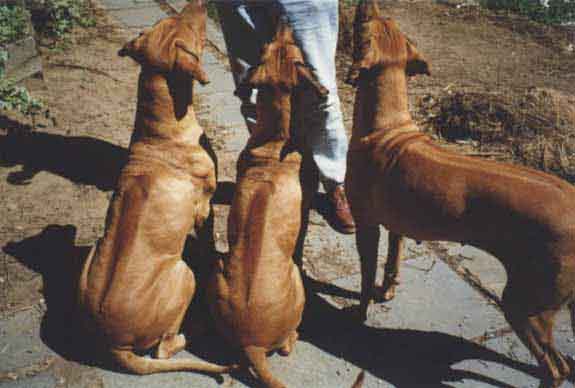

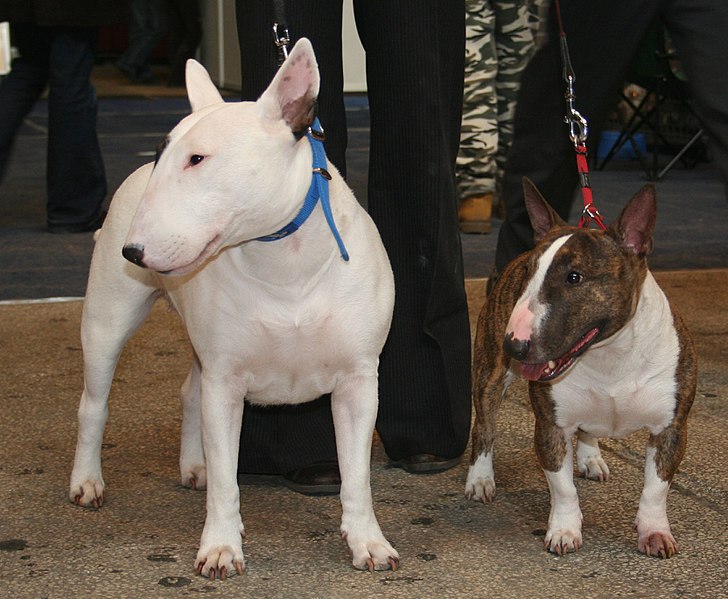
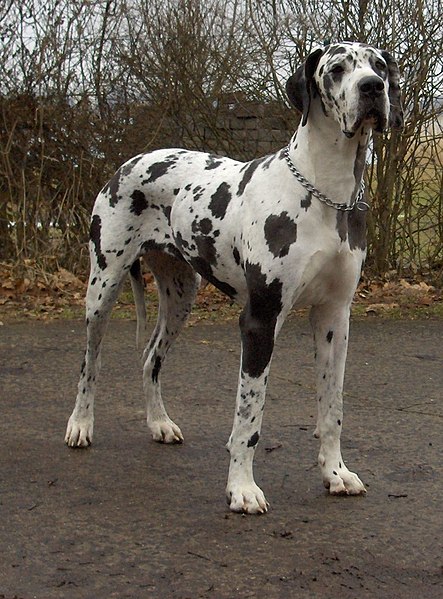




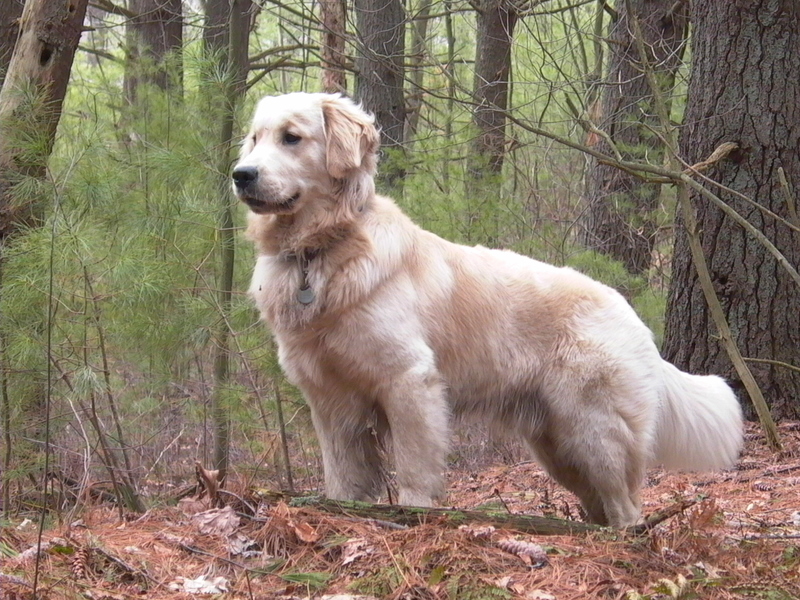

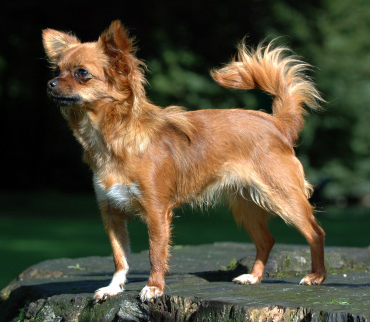
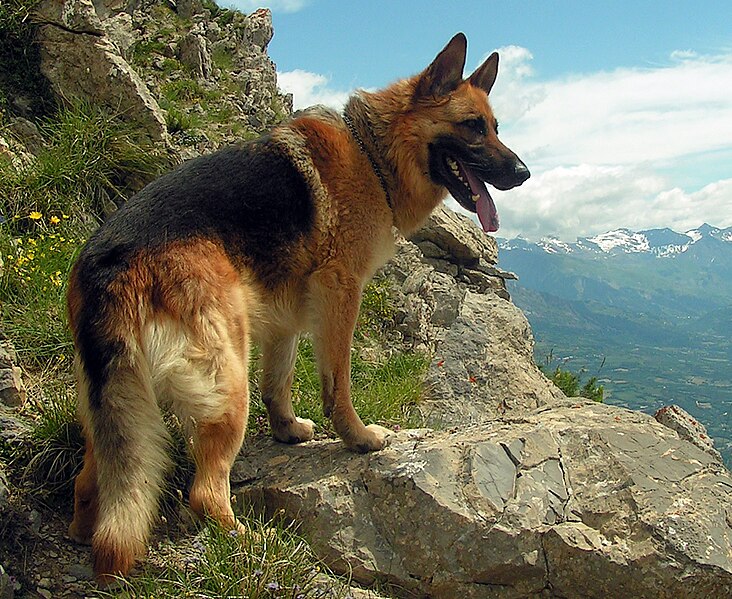


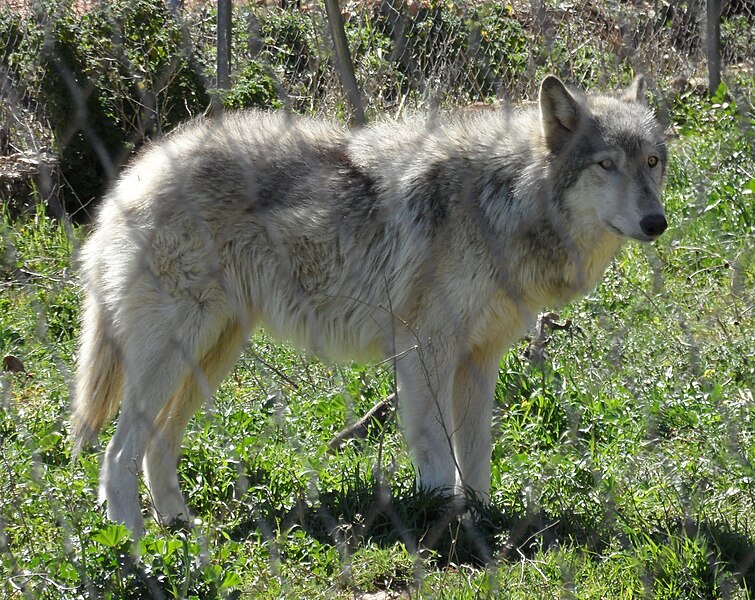

No comments:
Post a Comment